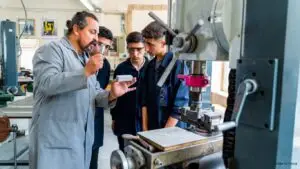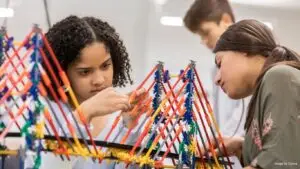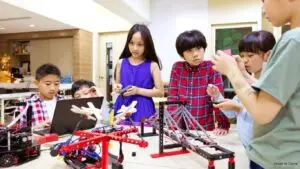In today’s interconnected world, education transcends geographical boundaries. As educators, it’s imperative to not only understand but also embrace the diverse perspectives shaping educational landscapes worldwide. From innovative teaching methods to emerging technologies, let’s embark on a journey to explore the ever-evolving trends in global education.
- Cultural Exchange in the Classroom:
In classrooms around the globe, cultural diversity enriches the learning experience. Teachers are integrating multicultural perspectives into their curriculum, fostering empathy, understanding, and respect among students. Through activities like cultural exchange programs and international collaborations, students gain insights into different traditions, languages, and worldviews, preparing them to thrive in an interconnected society. - Technology as a Catalyst for Learning:
The digital revolution has revolutionized education, breaking down barriers to learning and opening up a world of possibilities. From virtual classrooms to interactive learning platforms, technology is reshaping the way students access information and engage with course material. Embracing edtech tools not only enhances the learning experience but also equips students with essential digital literacy skills for the future workforce. - Inclusive Education for All:
Inclusivity lies at the heart of modern education, ensuring that every student, regardless of background or ability, has equal access to quality learning opportunities. Across the globe, educators are implementing inclusive practices that accommodate diverse learning styles and support students with disabilities. By creating inclusive learning environments, schools empower every individual to reach their full potential and contribute meaningfully to society. - Environmental Education and Sustainability:
With pressing global challenges such as climate change and environmental degradation, education plays a crucial role in fostering sustainability and environmental stewardship. Schools worldwide are incorporating environmental education into their curriculum, raising awareness about conservation, ecological responsibility, and sustainable living practices. By instilling a sense of environmental consciousness in students, educators are nurturing future generations of environmentally literate citizens. - Lifelong Learning and Continuous Professional Development:
In the rapidly evolving landscape of the 21st century, the pursuit of knowledge is a lifelong endeavor. Educators recognize the importance of continuous professional development to stay abreast of emerging trends and best practices in education. Through conferences, workshops, and online courses, teachers engage in ongoing learning experiences that enrich their pedagogical skills and enhance student outcomes. - Global Citizenship Education:
Beyond academic knowledge, education plays a pivotal role in shaping responsible global citizens. Through global citizenship education initiatives, students develop critical thinking skills, cultural awareness, and a sense of social responsibility. By promoting values of tolerance, equality, and peace, educators are nurturing a generation of empowered individuals who are equipped to address complex global challenges and contribute to positive social change.
In conclusion, the landscape of education is evolving rapidly, transcending borders and embracing diversity. By embracing global perspectives and staying attuned to emerging trends, educators can prepare students to thrive in an interconnected world. Together, let’s continue to explore, innovate, and shape the future of education, one classroom at a time.








